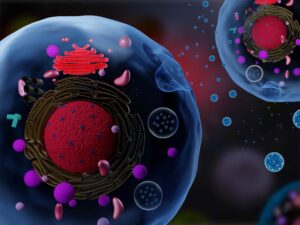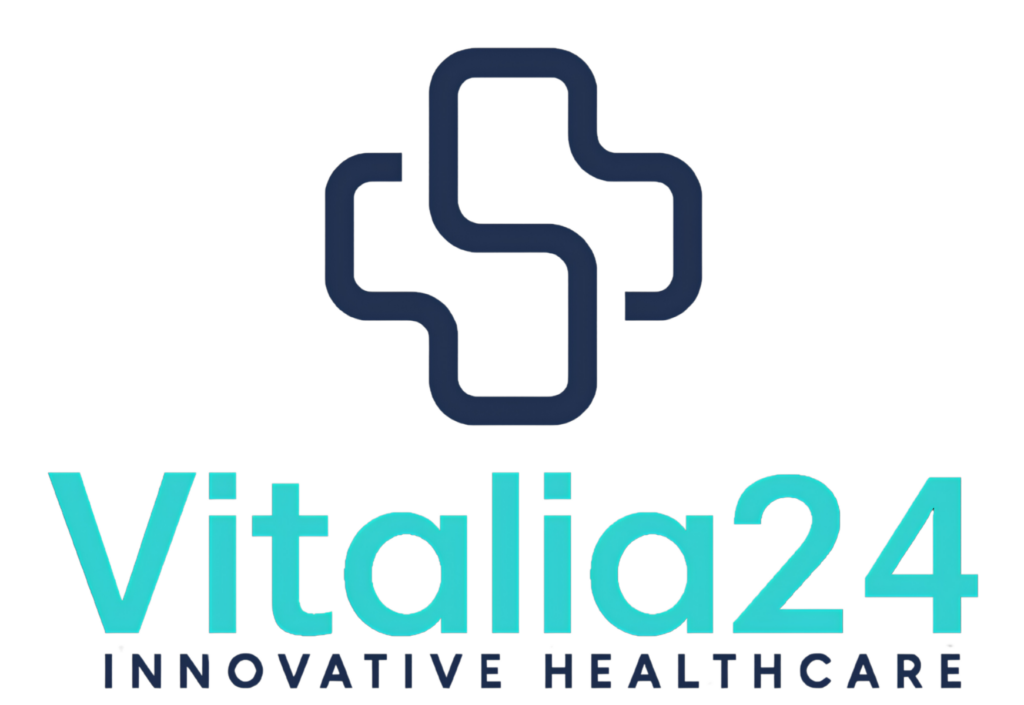What are Exosomes and how can they be applied in Neurological Health?
Exosomes are creating waves in the medical community, especially when it comes to addressing complex neurological conditions like autism spectrum disorder (ASD) and other neurological diseases. As research evolves, the combination of exosomes and stem cells is emerging as a groundbreaking therapy with the potential to transform lives. But what exactly are exosomes, and how do they work in tandem with stem cells? Let’s discover the fascinating world of cellular communication and regenerative medicine.
What Are Exosomes?
Exosomes, which were discovered in 1983, are small, nano-sized vesicles secreted by almost every type of cell in the body. These extracellular vesicles play a crucial role in intercellular communication, carrying proteins, lipids, and genetic material (like RNA) between cells. Essentially, exosomes act as messengers, facilitating the transfer of information to maintain cellular health and coordination.
Unlike traditional medications or therapies, exosomes work on a cellular level, targeting the root causes of disease rather than just alleviating symptoms. They are known for their regenerative and anti-inflammatory properties, making them a focal point in cutting-edge research.

The Role of Exosomes in Neurological Health
Neurological diseases, including autism spectrum disorder, Alzheimer’s disease, Parkinson’s disease, and traumatic brain injuries, often stem from inflammation, damaged neurons, or disrupted cellular communication. Exosomes can address these issues by:
- Reducing Inflammation: Exosomes carry anti-inflammatory molecules that help mitigate chronic inflammation, which is often a hallmark of neurological conditions.
- Promoting Neurogenesis: They encourage the growth and repair of neurons, aiding in the restoration of damaged brain cells.
- Enhancing Synaptic Plasticity: Exosomes facilitate better communication between neurons, improving cognitive functions like learning and memory.
- Modulating Immune Response: They help regulate the immune system to prevent it from attacking healthy brain tissue.
Stem Cells and Exosomes: A Powerful Duo
Stem cells have long been hailed for their ability to regenerate damaged tissues and organs. These pluripotent cells can differentiate into various cell types, offering immense potential for treating a wide range of diseases. When combined with exosomes, the therapeutic effects are amplified, creating a synergistic approach to healing.
Here’s how the combination works:
- Enhanced Delivery: Exosomes derived from stem cells act as vehicles to deliver therapeutic molecules directly to damaged or inflamed tissues.
- Improved Efficacy: Stem cell exosomes are enriched with growth factors, cytokines, and other bioactive molecules, boosting the body’s natural repair mechanisms.
- Non-Invasive Therapy: Unlike direct stem cell transplantation, which can be invasive, exosome therapy is less invasive while still leveraging the benefits of stem cell-derived compounds.
- Customized Treatment: Exosomes can be tailored to target specific neurological conditions, enhancing precision medicine.
Applications in Autism Spectrum Disorder (ASD)
-
Autism spectrum disorder is a complex developmental condition characterized by social, behavioral, and communication challenges. While the exact causes of ASD remain unclear, studies suggest that neuroinflammation, oxidative stress, and disrupted synaptic signaling play significant roles.
Exosomes offer promising therapeutic avenues for ASD by:
- Reducing Neuroinflammation: Stem cell-derived exosomes can reduce inflammation in the brain, addressing a key factor in autism pathology.
- Improving Neural Connectivity: By promoting synaptic plasticity, exosomes can enhance communication between neurons, potentially improving behavioral and cognitive functions.
- Delivering Therapeutic Molecules: Exosomes can transport microRNAs and other molecules that modulate gene expression, potentially addressing the underlying genetic factors of ASD.
Treating Autism Spectrum Disorder (ASD) with Stem Cells and Exosomes
Clinical trials exploring the use of stem cells and exosomes for autism treatment focus on their potential to address the biological abnormalities underlying Autism Spectrum Disorder (ASD). These investigations are supported by the regenerative, anti-inflammatory, and immunomodulatory capabilities of both stem cells and their exosomes.
Learn more about advanced Stem Cell Treatments.
Potential in Other Neurological Diseases
The benefits of exosome therapy extend far beyond autism. Here are some examples:
- Alzheimer’s Disease: Exosomes can deliver therapeutic agents that target beta-amyloid plaques, a hallmark of Alzheimer’s.
- Parkinson’s Disease: They may help restore dopaminergic neurons and reduce inflammation in affected brain regions.
- Traumatic Brain Injury: Exosomes can promote neural repair and reduce secondary brain damage caused by inflammation.
- Multiple Sclerosis: They modulate immune responses and support myelin regeneration, crucial for patients with MS.
Conclusion
The appeal of exosome therapy lies in its versatility and potential to treat conditions once thought untreatable. With minimal risks and the ability to target diseases at a cellular level, exosomes represent a paradigm shift in medical science.
If you’re considering exosome therapy or want to learn more about its applications, contact Vitalia24 for more information.


